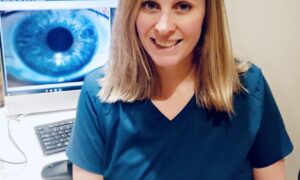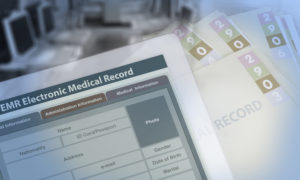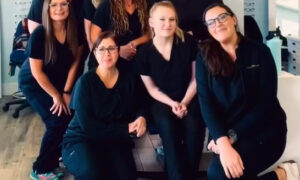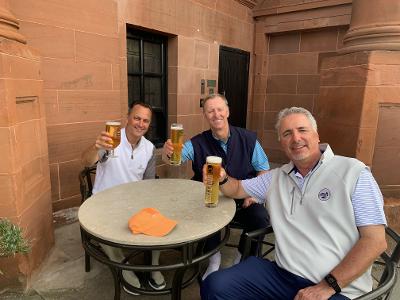
Dr. Krivacic (far right as you’re looking at photo) enjoying time with friends after playing a round of golf.
By Ken Krviacic, OD, MBA
May 4, 2022
I built a $1 million practice, which I profitably sold in 2020. I continue to do the work I have always loved, and have accumulated adequate savings, yet I still feel unsettled about exactly when and how I should retire.
Do You Need a Definite Retirement Date?
What is your plan for retiring? Do you have a specific time frame in mind or could it be more of a process? I just turned 65 a few months ago, but these are questions I have mulled over for many years.
I always looked at retirement as a definite date. The plan was to work until then and then walk away from optometry. In fact, I thought it was all planned out. I had a younger business partner in the practice, and we had become 50/50 partners a few years ago. My plan then was to sell him the remaining 50 percent once I turned 65.
As most of us know, things don’t always go as planned. A few years ago, we were approached by several private equity groups, and after careful contemplation and analysis, the draw of immediate financial security was too hard to pass up, so we sold our practice. As part of the deal, we were required to stay on for three years as employed optometrists.
It was then that I thought the three-year timeline would be the date I hang up my 30+ career in optometry. I am a year away from that date and am now having second thoughts. A few of these involve financial matters and a few involve emotional matters, such as a loss of purpose that not working in a beloved profession brings. Let’s look at the key decision factors when considering retirement.
Financial: Do I Have Enough Savings to Comfortably Live & Cover Healthcare Costs?
Do you have enough saved?
According to the U.S. Employee Benefits website, only 50 percent of employees have calculated how much they need to retire comfortably, and the average American spends 20 years in retirement. Experts recommend having 70-90 percent of your pre-retirement income available when you retire. Make sure you do the calculations.
Do you have health coverage?
How many times have you talked to friends or patients and heard tales of retiring early only to find that they are shocked by the cost of health coverage when you have to pay it yourself? I have a physician friend who retired last year and is now contemplating going back to work due to the high cost of out-of-pocket health-related costs.
Emotional: What Will I Do With All That Time?
What am I going to do every day?
Sure, retirement sounds great, especially seeing the commercials on TV where everyone is smiling, sleeping in until sundown, splashing in the waters off the coast of some exotic island or having dinner out with friends every night. Are those commercials realistic? I’m not sure I want to do that much splashing or sleeping. Physically, I’m not sure I could play golf everyday without that darn hip flexor flaring up.
Crazy as it sounds, I value a structured life. I like the routine. How do I exchange this routine for another?
How do you replace the sense of purpose that your career provides?
The other large dilemma is the loss of purpose. Optometry afforded me a career in which I am able to help people live a better life. There has been the rare instance over the last 30 years, where catching an ocular condition early has led to saving a patient from going blind. That kind of gratification is hard to find in most jobs, let alone in retirement.
Other Articles to Explore
Mike Drak in his article, “An F in Retirement,”i lists the five biggest mistakes he made about retiring with the largest being the loss of purpose. He writes: “Now, we get to my biggest mistake—not having something to retire to. When we retire, our sense of purpose takes a major hit. Suddenly, I was waking up to days with no meetings and deadlines. My identity was slipping away. I needed to fill the big hole created when I was forced to retire. Until I filled it, I felt that something was missing in my life.”
My fear is I will be in the same boat as Mike.
A New Game Plan: Phased Retirement
Dan McDermott in his article, “Testing the Waters,”ii talks about the concept of a phased retirement. So, rather then jump in and just quit working one day and then be retired the next, Dan advocates taking it slow. Why not continue to work, but fewer days per week? That would free up other days to pursue other passions or activities yet still have a somewhat structured life.
My new plan is to sample the phased retirement. I currently work three and a half days per week, and have done so for over 10 years. I’m thinking next year I reduce my schedule to three days a week. Then the next year two days a week and so forth. It allows me the flexibility of working as much as I want and also the time to explore the other projects or post-retirement career choices without having to jump in fully either way.
A phased retirement also provides a cushion to the shock of not receiving a paycheck and suddenly worrying about whether I really have enough saved to enjoy retirement. The phased plan also allows me time to figure out what I want to do.
As McDermott says: “Planning for these changes in a phased way could help you minimize any disruptions to your lifestyle, and help you better acclimate and embrace the changes.”
Rather then jump head-first into the water, I’m going to dip my big toe in first. Wish me luck.
References
i. “An F in Retirement” – Mike Dak 10/16/21 HumbleDollar newsletter
ii. “Testing the Waters” – Dan McDermott 4/1/22 HumbleDollar newsletter
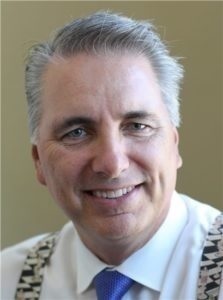 Ken Krivacic, OD, MBA, practices at Las Colinas Vision Center in Irving, Texas. To contact him: kkrivacic@aol.com.
Ken Krivacic, OD, MBA, practices at Las Colinas Vision Center in Irving, Texas. To contact him: kkrivacic@aol.com.

